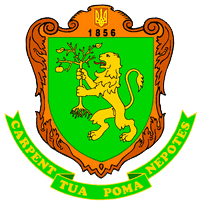SYSTEM APPROACH TO EVALUATION OF THE RISK OF UNTIMELY IMPLEMENTATION OF WORK IN THE INTEGRATED PROJECTS
DOI:
https://doi.org/10.31734/agroengineering2019.23.123Keywords:
integrated projects, management, risk, works, untimelyAbstract
The article argues the necessity of development of scientific and methodological principles of risk management projects, based on the use of a system approach to risk formation in these projects. Consideration of integrated projects from a system approach position enables concerning of risks and justifying of their effective plans, avoiding of possible mistakes, and developing of advanced methods, models and algorithms for managerial decision-making with risk. The paper recognizes the unresolved scientific and applied task of development of a system approach to assessment of the risks of untimely execution of work in integrated projects. Relationships are analyzed between basic and derivative projects that are integrated with each other. Basing on use of a system approach to identification of the risks of integrated projects, it is substantiated that this risk is formed by two interrelated components (basic and derivative projects).
Quantitative assessment of the risks of integrated projects requires modeling of each of the basic and derivative projects, which will enable changing of the system relationships between them and improving of the accuracy of results. A structural scheme of risk formation in integrated projects is developed in the work. It is based on a system approach to reviewing of individual projects and using system principles. Using the suggested approach, it is possible to consider the changing system relationships underlying the risk identification. Peculiarities of resource usage in integrated projects are substantiated in the article. It was established that to improve efficiency of management process of assessment of risks of untimely execution of works, it is necessary to develop methods and models that will take into account both changing events in each of the projects and changing characteristics of their project environment. Thus, it causes the risk of untimely execution of works in the integrated projects.
Consideration of significant peculiarities during managerial decision-making will greatly affect the quality of development plans for the integrated projects. The proposed system approach to quantitative evaluation of the risk of untimely execution of works in integrated projects is based on modeling of works in individual projects. It also involves forecasting of the changing events that cause the need to perform these works. Changing the performance distribution of work volume in time, depending on the spatial location of the resources, involved in the implementation of the basic and derivative projects, is the main reason for determination of the minimum delay of their movement and timely work performance. Using the proposed approach for risk assessment, it is possible to minimize the risk of untimely performance of work in certain zones of implementation of the integrated projects.
References
Burkov, V. N., Danev, B. V., & Enaleev, A. K. (1989). Bolshie sistemy: modelirovanie organizatsionnyh mehanizmov. Moskva: Nauka.
Buslenko, N. P. (1978). Modelirovanie slozhnyh sistem. Moskva: Nauka.
Bushuev, S. D. (2010). Tsennostnyi podhod v upravlenii razvitiem slozhnyh sistem. Zbirnyk naukovykh prats Kyivskoho natsionalnoho universytetu budivnytstva ta arkhitektury : Upravlinnia rozvytkom skladnykh system, 1, 10–15.
Danchenko, O. B. (2014). Ohliad suchasnykh metodolohii upravlinnia ryzykamy v proektakh. Upravlinnia proektamy ta rozvytok vyrobnytstva, 1 (49), 16–25.
Druzhinin, V. V., & Kontrov, D. S. (1985). Sistemotehnika. Moskva: Radio i svyaz.
Tryhuba, A., Ftoma, O., Tryhuba, I., Sydorchuk, L., & Boiarchuk, O. (2018). Identyfikatsiia ryzykiv tsinnosti proektiv stvorennia kooperatyviv kormozabezpechennia simeinykh molochnykh ferm. Visnyk Lvivskoho natsionalnoho ahrarnoho universytetu: Ahroinzhenerni doslidzhennia, 22, 177–186.
Adamchuk, V. V., Sydorchuk, O. V., & Lub, P. M. (2014). Planuvannia proektiv vyroshchuvannia silskohospodarskykh kultur na osnovi statystychnoho imitatsiinoho modeliuvannia: Monohrafiia. Nizhyn: Vydavets PP Lysenko M. M.
Tymochko, V. O., Padiuka, R. I., & Horodetskyi, I. M. (2016). Strukturna model informatsiinoi systemy pryiniattia rishen z upravlinnia resursamy u portfeli proektiv silskohospodarskoho pidpryiemstva. Visnyk natsionalnoho tekhnichnoho universytetu “KhPI”. Seriia: Stratehichne upravlinnia, upravlinnia portfeliamy, prohramamy ta proektamy, 2 (1174), 49–54.
Tryhuba, A. M. (2011). Klasyfikatsiia ta osoblyvosti realizatsii intehrovanykh proektiv ahrarnoho vyrobnytstva. Naukovyi zhurnal Natsionalnoho tekhnichnoho universytetu: upravlinnia proektamy, systemnyi analiz i lohistyka, 8, 197–201.
Tryhuba, A. M. (2017). Systemno-proektni osnovy upravlinnia rozvytkom. tekhnolohichnykh struktur vyrobnytstva molochnoi produktsii: (Dys. … d-ra tekhn. nauk). Odesa.
Tryhuba, A. M., Tryhuba, I. L., Boiarchuk, O. V., & Rudynets, M. V. (2018). Identyfikatsiia konfihuratsii proektnoho seredovyshcha ta proektiv kormozabezpechennia simeinykh molochnykh ferm. Visnyk Natsionalnoho tekhnichnoho universytetu “Kharkivskyi politekhnichnyi universytet”. Seriia: Stratehichne upravlinnia, upravlinnia portfeliamy, prohramamy ta proektamy, 1 (1277), 64–68.
Tryhuba, A. M., Sheleha, O. V., Pukas, V. L., & Mykhaliuk, V. M. (2015). Uzghodzhennia konfihuratsii intehrovanykh proektiv ahrarnoho vyrobnytstva. Visnyk Natsionalnoho tekhnichnoho universytetu “Kharkivskyi politekhnichnyi universytet”. Seriia: Stratehichne upravlinnia, upravlinnia portfeliamy, prohramamy ta proektamy, 2 (1111), 135–140.
Tryhuba, A. M., Sholudko, P. V., Sydorchuk, L. L., & Boiarchuk, O. V. (2016). Systemno-tsinnisni zasady upravlinnia intehrovanymy prohramamy rozvytku molocharstva na osnovi modeliuvannia. Visnyk Natsionalnoho tekhnichnoho universytetu “KhPI”. Seriia: Stratehichne upravlinnia, upravlinnia portfeliamy, prohramamy ta proektamy, 2 (1174), 103–107.
IEE Std 828-1998 [Text] / IEEE Standard for Software Configuration Management Plans, IEEE. (1998).
IPMA Organizational Competence Baseline (IPMA OCB) / IPMA. (2013). Retrieved from www.ipma.world/assets/IPMA-OCB/pdf.
ISO 21500. (2012). Guidance on project management. Retrieved from http://www.projectprofy.ru/.
Krasowski, E., Sydorchuk, O., & Sydorchuk, L. (2015). Modeling and Management of the Technical and Technological Potential in Agricultural Production. Teka: аn international quarterly journal on economics in technology, new technologies and modelling processes, 15 (4), 79–84.
Kutsch, E., & Hall, M. (2010). Deliberate ignorance in project risk management. International Journal of Project Management, 28, 245–255.
PRIENCE2. Managing successful project with PRIENCE2. London: TSO, 2009. 315 р.
Regulation EU 882/2004. About official control, carried out in order to ensure compliance checks on legislation concerning food and feed, and the rules for the health and welfare of animals. Approved. 2004. From 29.04.2004.


